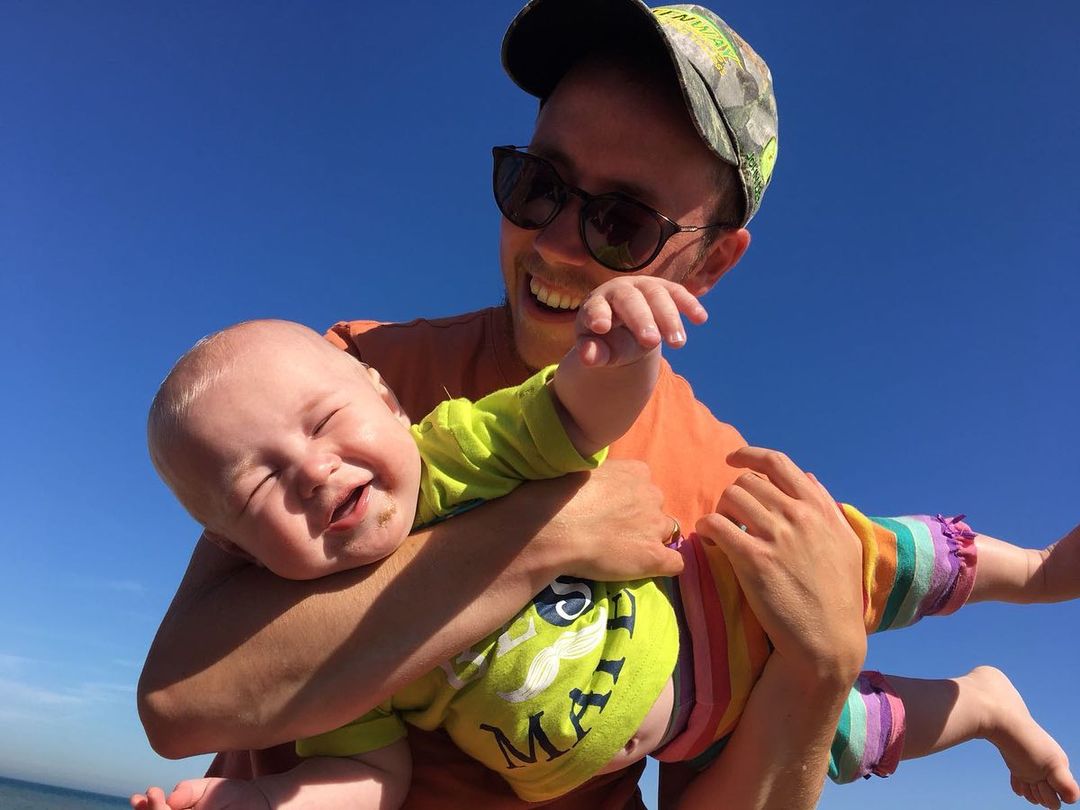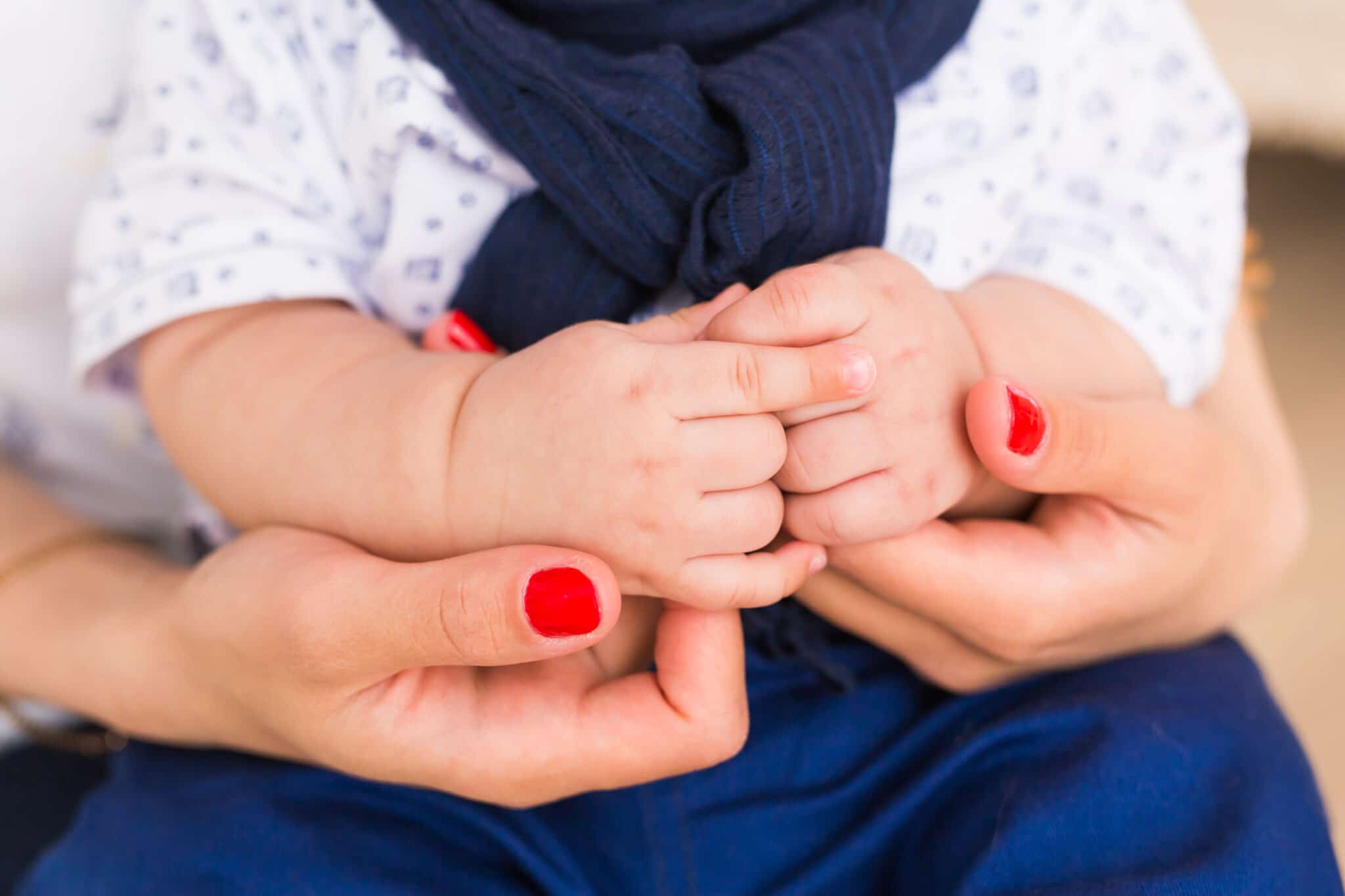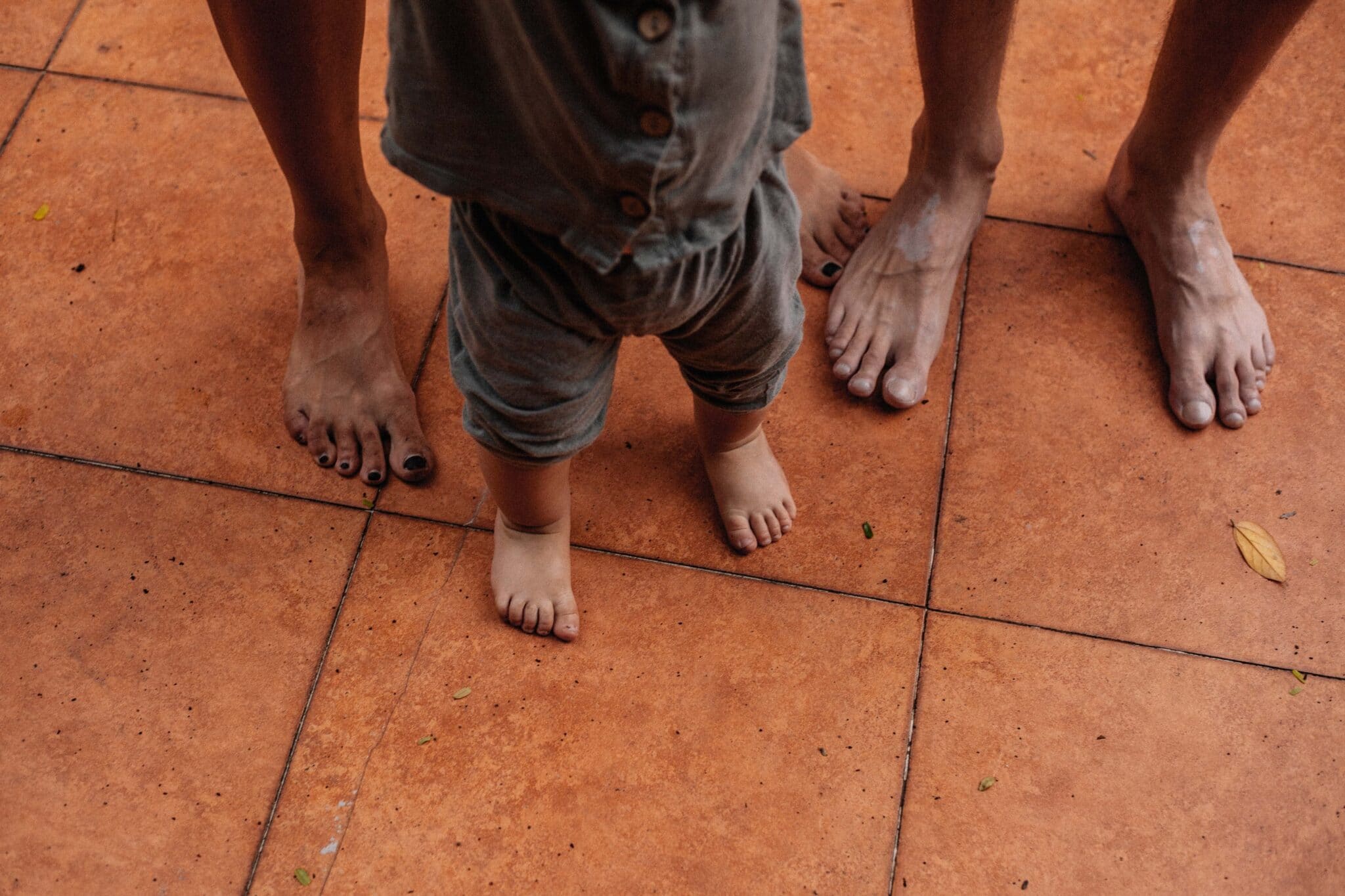The UK is making sure kids of trans parents are disadvantaged from the moment they’re born

Stock photo of a small child. (Envato/twenty20photos)
British children of trans parents are disadvantaged because they don’t have an accurate birth certificate – in some cases, they don’t have a birth certificate at all.
Throughout their lives, these children are at risk of being discriminated against or harassed whenever they need to produce their birth certificate. This includes when these children apply for their first passport, go to school, take exams, attend university, get married and collect their pensions.
The risk to these children of discrimination and harassment is because the British state does not legally recognise their trans parents.
Trans parents, including those with legal recognition of their gender, cannot be accurately listed on their children’s birth certificates. This is because archaic UK law from the 1950s insists that whoever gives birth to a baby can only be recorded as the mother on the birth certificate.
Children who were birthed by a trans man or non-binary person will have that parent listed as their mother, regardless of their gender. Trans mothers will be listed on birth certificates as “father”. This is true even when trans parents have their gender legally recognised – an arduous process that few trans people access.
One person who tried to challenge this outdated and discriminatory law is Freddy McConnell, a trans dad who fought an ultimately unsuccessful four-year legal battle to be named his child’s “parent” or “father” on their birth certificate. Freddy lost his case at the Court of Appeal in 2020, and the Supreme Court rejected his request to appeal that ruling – leaving him without further legal options in the UK.
Freddy’s case could have paved a way for children of trans parents to have accurate birth certificates. Trans-inclusive, gender-neutral birth certificates would, advocacy groups argued, better reflect the growing diversity of families in the UK. But the judges ruled against him, maintaining that because he gave birth, Freddy has to be registered on the birth certificate as his child’s mother, irrespective of his legal gender – even though he would correctly be registered as a father if he became a dad through a partner giving birth or via a surrogate.
Now pregnant with his second child, Freddy is crowdfunding to travel to Sweden to give birth so that his baby can have an accurate birth certificate. Freddy’s first kid has no birth certificate at all, but if his second can be born in Sweden, Freddy will be correctly listed as their dad.

Freddy McConnell with his first child. (Instagram/Freddy.McConnell)
But many trans parents don’t have access to legal support or the resources needed to travel abroad – or the energy to fight these battles. The lack of legal recognition is impacting how, and whether, they have children, and will affect those children for the rest of their lives.
Three families spoke to PinkNews about how this situation is weighing on their lives, and the lives of their children.
‘Surely a document which misgenders and deadnames both trans parents has stopped being useful’?
Atlas, who is non-binary, and their trans girlfriend, Lucy, have a five-year-old child, Jamie, together – they are both biologically the child’s parents.
But Atlas and Lucy have decided not to have any more children. This is because of the gender dysphoria Atlas experienced during their pregnancy with Jamie, the high price of private sperm freezing and storage (Lucy has been waiting for her first appointment at an NHS gender clinic for more than three years), and, crucially, the lack of legal rights that trans parents have – including the lack of access to a correct birth certificate.
Atlas explains: “Jamie has a birth certificate which lists me as the mother despite my identity as a non-binary person, and lists my girlfriend as the father despite her identity as a trans woman.”
Jamie’s birth certificate also lists the wrong names for both their parents, who have changed their names by deed poll since Jamie was born.
As a result, “almost none of the details” on Jamie’s birth certificate are correct, despite it being “a relevant piece of paperwork for use throughout their life”.
Atlas continues: “Surely a document which misgenders and deadnames both parents has stopped being useful.
“In many contexts providing false information constitutes fraud but in the case of our child there is no way for us to provide them with an up to date birth certificate using the correct details.
“If, for example, we wanted to apply for a passport for our child we would have to provide their birth certificate and the birth certificates of their parents as standard, but we would also have to include both of our deed polls at a minimum in order for the details to be correct.” This would out Jamie as having trans parents, potentially opening them up to discrimination and prejudice.
The solution, Atlas thinks, is for trans parents to be able to be listed as just that – the parents – on their child’s birth certificate, and for it to be easier to amend a birth certificate if, like Atlas and Lucy did, one or both of the parents changes their legal name.
“This would benefit trans people who have changed their name and/or gender,” Atlas say, because “the current process of deed poll and gender recognition certificate are convoluted and will out a trans person in most cases. Not to mention that there is currently no legal recognition of non-binary people in the UK.
“Additionally birth certificates should just list the parents as ‘parent’ rather than ‘mother’ or ‘father’. It’s already possible to list a second parent who is not a man as ‘parent’, which was introduced in order to allow children with two mothers to have both parents listed on their birth certificate.
“Surely if this is the case it is possible to go a step further and remove the archaic rule that whoever births the child must be registered as the mother.”

Stock photo of baby’s hands with adult hands. (Envato/Satura_)
The person who gives birth must legally be called the ‘mother’
Ben, who is cis, and his husband, Seth, who is trans non-binary, have two children together.
Seth was the birthing parent to both of the couple’s children: daughter Donna, who is now three-and-a-half-years old, and son Stuart, who is 12 weeks old.
Before they had kids, Ben and Seth were no strangers to the difficulties faced by trans people in the UK when it comes to legal procedures. Seth doesn’t have a Gender Recognition Certificate (the mechanism that allows adult trans men and women to obtain legal recognition of their gender for the purposes of taxes, marriage and pensions) so when he and Ben got married, it was not a same-sex marriage.
“We could not refer to ourselves as husband and husband in the contracting words,” Ben explains. “I had to call him [Seth] my wife to be legally married. Thankfully, the registrars allowed us to do that in a more private ceremony (we called it our red tape ceremony) so we could use the words we wanted in our ceremony in front of friends and family.”

Stock photo of baby with parents legs. (Envato/twenty20photos)
Because of this experience, Ben and Seth knew they would face being incorrectly recorded as their children’s “mother” and “father” on the birth certificate.
“We wrote to the registrars [when Stuart was born] explaining our objection and the impact it would have,” Ben says. The couple explained that listing Seth as “mother” wouldn’t just be incorrect – it distressing and offensive, and raises safety and privacy concerns for their child.
The response Ben and Seth got “was pretty much as expected”.
In an email seen by PinkNews, the General Registry Office said it “appreciate the parents’ concerns” and “empathise with their position”.
“However, the law as it stands does not provide an alternative to ‘Mother’ for the person who has physically given birth to the child,” the GRO explained. This was confirmed by the judgment in Freddy’s court case, when the president of the Family Division, Sir Andrew MacFarlane, ruled that being a child’s “mother” or “father” is not necessarily gender specific and that a person’s gender can be different to their status as a parent.
Ben says that in his and Seth’s view, the issue is easily solved. “We would like to see extra flexibility in the system so any parents registering the birth of their child can opt to be recorded with the non-gendered label ‘parent’,” he says. This is already possible in countries including the Netherlands, Sweden and Canada.
‘We couldn’t believe how we were being treated’

Stock photo of young family with baby. (Envato/twenty20photos)
Jessica and her husband, Mark, got married recently, and the couple have a 14-week-old daughter together.
But Jessica says that when they went to register their daughter’s birth, “we were very disheartened to be told that we couldn’t do it”.
The registry office “didn’t know what my husband should be named as on the birth certificate because he is transgender”, Jessica explains. “We had to wait a further five weeks for the General Registry Office to make a decision on this case.”
Mark is legally male, and had shown the local registry office his GRC. But the office wouldn’t register him as the father of his baby on her birth certificate because he is trans.
When the couple tried to register their baby’s birth, the registrar repeatedly called Mark by his female deadname, and then asked the couple to provide documentation from the fertility clinic that they used to conceive their baby.
Mark and Jessica say they “felt very discriminated against” and “couldn’t believe how we were being treated”.
Because Mark wasn’t the birthing parent, he was able, eventually, to be correctly listed on his daughter’s birth certificate.
“After five weeks of waiting, we got the good news that my husband would be registered as father,” Jessica says. “We feel like it should never of come to this in the first place.”
The struggle that Mark and Jessica went through – over something that two cis and heterosexual parents would never have to face – in those first weeks of new parenthood was a reminder that trans people do not have equality in the UK.
Asked what needs to change so that families like theirs are accepted, Jessica says there should be “clear guidance already out there from the General Registry Office” so that local registry offices “know what to do, instead of referring you to the General Registry Office to wait around for however long”.
“Being a trans parent isn’t something new,” she says, “but I feel like we are still so behind the times in some aspects.”
All names have been changed to protect the privacy of those interviewed.

